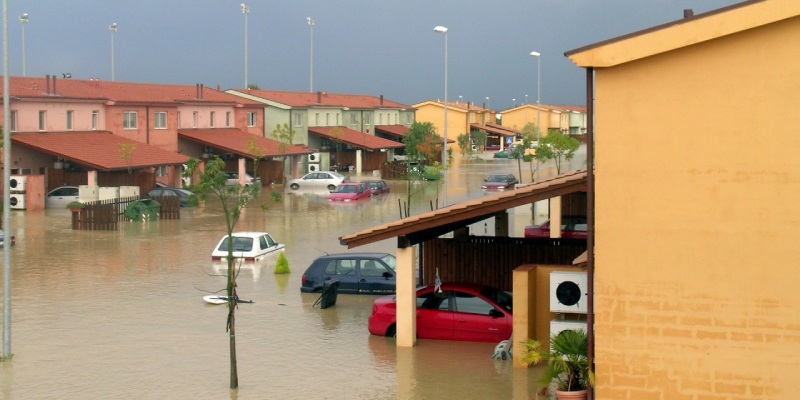Houston Prepares for Saharan Dust & Record Summer Heat, Before Hurricane Season

Houston has been preparing for the worst since last summer’s record-breaking heat wave. Now, they’re bracing for a dust storm that could bring heavy rains and even tornadoes. According to Houston meteorologists, a Saharan dust storm is moving over the Atlantic ocean from northern Africa. This dust cloud will impact the Gulf coast east of Texas and may reach Houston.This imminent influx of Saharan dust is due to trade winds that stir up sand from the Saharan Desert and move it throughout the world. Although this dust storm may not be as severe as the Godzilla Dust Storm of last year, which was visible from space, it could still be troublesome.
The upcoming dust storm is not the only thing to watch out for in the coming weeks, as temperatures rise. Early May has already brought record-breaking heat to Houston, with temperatures already reaching triple digits.According to NWS Climate Prediction Center, there is a 50% chance of seeing warmer than average temperatures this summer in Houston. With typical summers already being dangerous in Houston, the National Weather Service warns that the combination of heat and humidity could be dangerous for anyone outdoors. Cities across Texas have been opening cooling centers and as the heat index reaches 108 degrees for more than two consecutive days, free METRO rides to these centers will be open.
As summer approaches, so does the hurricane season. The hurricane season officially starts June 1st and extends to November 30th. The National Oceanic and Atmospheric Administration predicts a 65% chance that the Atlantic’s hurricane season will be busier than normal and only a 10% chance that this year will have below-average activity. The Atlantic hurricane season is projected to have a greater likelihood of major storms that will make landfall in Texas. NOAA expects this hurricane season 14 to 21 named storms, with six to ten possibly becoming hurricanes. Three to six of these hurricanes could become major ones with winds of 111 mph or higher.
Extreme weather like dust storms and hurricanes are not unusual in Houston. Houston is impacted by many different extreme weather events such as drought, wildfires, and floods. These extreme weather events can have disastrous effects, such as 2021’s “February Freeze”. This freeze caused state-wide blackouts, and frozen pipes to burst, which caused flooding and water damage in many homes. The recent extreme storms in Texas caused by tornadoes, ripped trees up and caused extensive structural damage to many homes. With such destructive weather events happening not only in Houston, but around the country, NOAA, advises Americans to prepare by reviewing and updating their insurance policies, creating an evacuation plan, gathering disaster supplies, and reinforcing their homes.
How to Deal With Insurance Claim Adjusters
With extreme weather events happening with more frequency, it is important to protect your most valuable assets, such as your home. These weather events will most likely cause damage to many homes and the cost of fixing it will lie on the homeowner. Many might depend on disaster relief funds from the state to cover some of the cost of fixing their homes, but chances are residents of Houston may not receive it. According to an investigation done by the U.S. Department of Housing and Urban Development, the state of Texas allocated none of the $1 billion in federal funds it received to protect communities from future disasters to neighborhoods in Houston that flood regularly. This means that Houstonians need to protect their own home by getting homeowners insurance.
Homeowners insurance protects homeowners by helping cover repairs or replacement when your home is damaged. A Houston-Texas homeowners insurance policy will most likely also need flood insurance to protect homeowners from severe types of water damage like heavy rain, melting snow, or severe coastal storms that happen frequently in Houston.
When a homeowner makes an insurance claim, an insurance claims adjuster will investigate it. The claim adjuster will interview the homeowner, inspect the property to determine the extent of damage and the costs of repairing the property. Then the claim adjuster submits documents to the insurance company describing the incident and recommends the claim amount. It is crucial that homeowner’s make sure the adjuster doesn’t miss anything when inspecting the damage so that homeowner’s get the correct amount in claims payment.
With Houston’s dangerous and unpredictable weather events, it’s important to protect your most important investment, your home. Homeowners insurance is a crucial aspect of protecting your home and your family.
And with weather being so unpredictable in these times where storms are becoming stronger, getting to know homeowners insurance adjuster tips is fundamental.